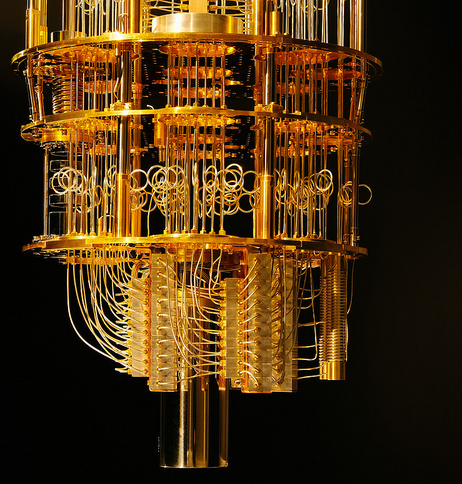What is IBM Quantum?
IBM Quantum is advanced quantum cloud technology – several real quantum computer devices and simulators available for use through the cloud – enabling Fortune 500 companies, startups, national research labs and academic institutions to run experiments and explore use cases.
These devices are part of the IBM Quantum roadmap, an initiative to build universal quantum computers for business and science. Find out more at ibm.com/quantum-computing.
Foundations of quantum technology
Quantum bits or qubits are quantum mechanical systems, like the state of a single atom or even a microscopic superconducting circuit. Classical computing works with bits, and a bit can only ever be 0 or 1. Qubits can be effectively both 0 and 1 at the same time.
This quality of qubits, called quantum superposition, together with the related phenomenon of entanglement, is where the remarkable increase in computing power begins.
As the number of qubits grow, superposition allows the quantum computer to represent exponentially increasing sets of numbers. To get a sense of what this means, imagine putting one grain of rice on the first square of a chessboard. Now double that number on each square and by the end of the board you’ll have 92 billion tonnes of rice.
Carefully choreographed sequences of quantum logic gates – the quantum software program – manipulate superposition and entanglement across the vast array of quantum information, to expand computational power.

How does IBM Quantum help research and development?

There are problems that today’s computer systems will never be able to solve, such as accurately simulating large interacting systems, or solving certain optimisation and machine learning challenges. These kinds of problems get exponentially harder as complexity grows even a little, and for problems above a certain size classical computer systems simply run out of steam.
However, quantum computers working alongside classical computers may provide solutions. See the potential near-term applications for quantum computing.